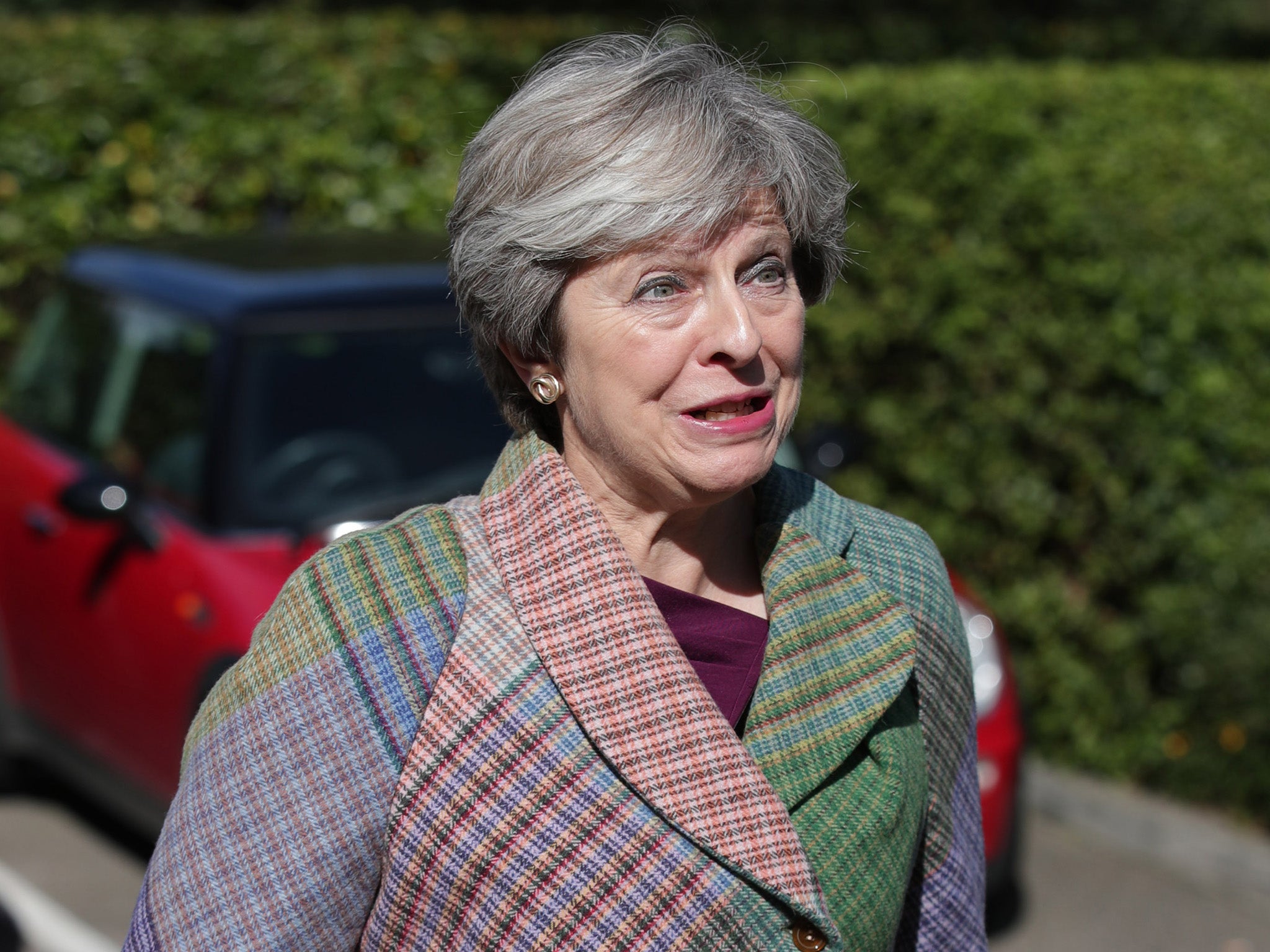The Tories need to realise that Brexit is more important than party politics
Theresa May’s advantage is that she can plausibly hold herself out as one of the few people in the Conservative Party who can be a bridge between hard and soft Brexiteers

When a Prime Minister is forced to assure the TV cameras that she has the “full support” of her Cabinet, it doesn’t take a genius to work out that her leadership is teetering on the edge of an abyss. Senior colleagues including Michael Gove, Amber Rudd and Damian Green have all been at pains to give the PM their public backing too. But how long will it last?
Having suffered a series of unfortunate events during her conference speech on Wednesday, Theresa May might have hoped that the party would rally round, united by sympathy if nothing else. Fat chance.
Instead, Grant Shapps, the former Conservative chairman and housing minister, merrily told the BBC that he thought there should be a leadership contest; worse, he claimed that 30 other MPs agreed with him. It would only take another 18 to join them to force a vote of confidence.
Fundamentally, of course, the only person to blame for the talk of plots is the Prime Minister herself. It was her disastrous decision to call an election earlier this year, when she did not need to, that led to the startling diminishment of her authority. When you run on a ticket offering strength and stability, there is nowhere to hide if you manage to actually lose your previously healthy majority.
Were it not for Brexit, it seems certain that the Prime Minister would have already faced a formal challenge from within her party already. Yet Conservatives are aware that a leadership contest now would throw the EU withdrawal negotiations into disarray at a crucial juncture. Perhaps as significantly, it would immediately be met by calls from the opposition parties to hold another general election on the basis that a new leader would have even less of a mandate for his or her Brexit of choice than does Ms May.
However, this is not to say the sands cannot shift. Theresa May’s advantage is that she can plausibly hold herself out as one of the few people in the Conservative Party who can be a bridge between hard and soft Brexiteers. But if either faction believes their interests are not being suitably served, they will feel little compunction in bringing the bridge crashing down.

Furthermore, in the event that a challenge becomes a reality, plotters will note that there have been prime ministerial changes before at periods of great national crisis. In fact, Boris Johnson might rather fancy a Churchillian comparison as a means to kicking off a potential leadership bid.
It was Mr Johnson, of course, whose prominent interventions in the press – not least setting out his own “vision” for Brexit in a Daily Telegraph column – arguably set the ball rolling on the most recent bout of dissent. He has in the past week sought to play down the perception that he is seeking to destabilise the Prime Minister, although that perhaps reflects a sudden doubt about whether he would actually win a leadership contest against one of the soft-Brexit potential candidates (Amber Rudd or Philip Hammond, or even Ruth Davidson if she were to enter Parliament), rather than renewed belief in Ms May.
It is likely also that Johnson is, much as he would deny it, as anxious about carrying the can for a bad Brexit as anyone else who might ultimately have to take responsibility for the UK’s EU withdrawal. Indeed, it is surely the fear of being unable, in the end, to have much control over the departure deal – which will be determined far more by the EU’s remaining members than Her Majesty’s Government – that gives Ms May hope for her survival.
Whichever way you look at it though, it is hard to avoid the impression that there are a great many Conservative MPs whose first instinct is to consider their own interests (ie their personal ambition) and whose second instinct is to consider the health of the party (ie doing whatever it takes to avoid a general election and to keep Labour out of office). The national interest comes a poor third.
At a time when ministers are engaged in negotiations which will determine existential questions about Britain’s future, that is hardly reassuring.
Join our commenting forum
Join thought-provoking conversations, follow other Independent readers and see their replies
Comments